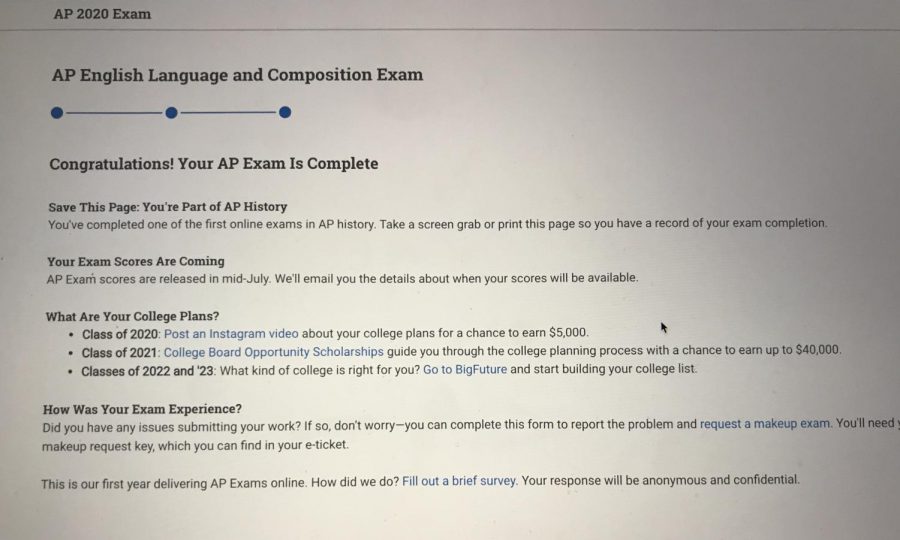Dear College Board
The College Board, a multimillion-dollar “not-for-profit” organization geared toward connecting students to college success, has recently been sued with a $500 million federal court lawsuit for gross negligence. Over the past few months, the College Board has been met with an immense amount of backlash for administering online AP exams that most claim were not up to par with an international standard. “I do believe that they could’ve waited more time and made sure that their system was working properly,” Elizabeth Arroyo, a sophomore, said.
June 3, 2020
According to CPR News, on May 19, a $500 million federal court lawsuit was filed against the College Board on an alleged account of gross negligence, misrepresentation, and violation of the Americans with Disabilities act. The charge is well deserved considering all the wrongdoings they’ve committed over the last two months.
After school closure was implemented in March, the College Board decided to ask 18,000 AP students whether they still wanted to partake in the May exams; 91% of the students said yes. Instead of administering a three-hour-long test, the College Board gave way to an online 45-minute exam.
The way that the College Board painted the exam-day process out was flawless- at the time. Students who wanted to prepare for the exam could use the College Board exam demo and follow along through AP review sessions on Youtube. Enrollees could use notes, but advanced technology would be used to catch plagiarism. And finally, if they had trouble submitting their responses in May, there would be makeup exams in June.
To me, this seemed like a wonderful opportunity in the midst of all this uncertainty, but when the exams began actually rolling around, I had a change in heart. The way that the College Board set up these exams did not take into account certain factors that could prevent students from excelling.
Their attempt at administering these exams did not accommodate the many students who come from low-income backgrounds and do not have access to stable internet connections or computers at home. My mom had to call the technician three days before one of my exams because I was having trouble with my wifi connection.
The College Board encouraged students to test in a quiet area, but many kids don’t have that at home. I live in a two-bedroom apartment with five other people, and my home is hardly ever quiet nowadays. When I was taking my English Language and Composition exam on the 22nd, I was interrupted multiple times by my brother who was leaving for work. Why should I be penalized for their inconsistency?
Because only one exam was globally administered per course, many international students were forced to test at odd hours of the day. How could a student give their 100% when they are told that they must test at 3 a.m. in the morning? You would think that a $1.1 billion educational monopoly would have the means to create multiple exams that would cater to all their students.
When it came to cheating, the College Board stated that students using the internet or personal notes would not be penalized, yet openly admitted to uploading false information online in an attempt to confuse test-takers.
The College Board is also claiming that less than one percent of its test-takers had problems submitting their responses. When that’s put into perspective, that accounts for almost 12,000 students who had unsuccessful experiences in May.
Currently, the College Board is blaming students for using incorrect internet browsers, but have not yet admitted to their own faults. Many students across the nation received “error messages” upon submitting their responses, and requesting to make up the test in June did not prove to be less stressful either.
I personally believe that the College Board had good intentions when they decided to still go forward with these exams. They wanted to offer students the chance to still showcase their skills despite our current global state, but I feel like they were desultory in their efforts. Next time you try to juke $94 from students, prepare for the backlash.


